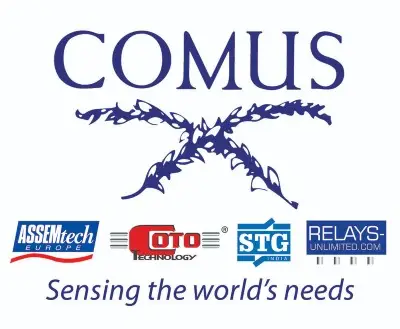Sensing the world’s needs.
Comus International was founded in June 1978 by Robert P. Romano.
Comus International started out as a manufacturer of glass mercury tilt-switches for residential and commercial thermostats. Immediate success and rapid growth led to new product development and soon the metal mercury switch and, ultimately, the patented non-mercury switch were designed and offered to the market which led to further success.
Today, Comus International is a leading manufacturer of tilt and tip-over switches, motion/vibration sensors, reed switches, reed relays, solid state relays, proximity sensors, float switches and a wide variety of custom turnkey sensors. Success of our product growth and offering has been built with an excellent reputation for quality and service.
Comus has evolved into a world leader in the design, development and manufacture of a wide variety of sensors and sensor-related products. Applications are found in such diverse market segments as medical, automotive, white goods, alarm and security, and military/aerospace.
Our success through the past several decades is a combination of continual organic and acquisition growth, leading to the formation of the Comus Group of companies. Divisions include the following:
• Comus Europe (formerly known as Assemtech) and Active Switch and Sensor in Essex – England.
• Comus International BVBA in Belgium.
• Comus Technology B.V. (Formerly known as Coto Technology) in The Netherlands.
• STG India and Comus India.
• Computer Components Inc. in the United States.
The Comus Group of Companies is now one of the largest manufacturers in the sensor industry.
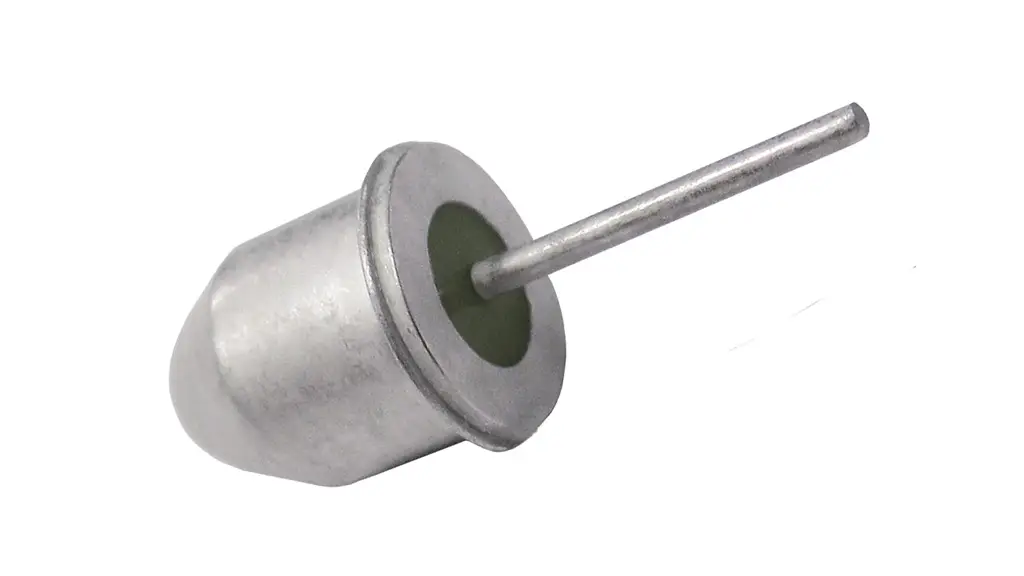
Tilt/Motion Switches
The tilt and tip-over switches and motion sensors are available as mercury metal and our patented non-mercury metal (patents #5.209.343 and #5.332.876.). Tilt switches are used to sense movement (tilt) of a device above and below a horizontal axis. Some applications include: level controls, appliances, security alarm systems, toys and games, float switches and water treatment equipment, portable lamps, PC anti-theft devices, vending-machine alarms and machinery security systems.
Motion sensors are very similar in design to tilt switches; in fact, some tilt switches are used as motion sensors. The sensor will be in one condition (open or closed) at rest. When it is subjected to motion it will continually change state as long as it remains in motion. Some common applications include: anti-theft devices, man-down alarms to detect non motion, smart appliances to turn off power when not in use and portable equipment to do the same.
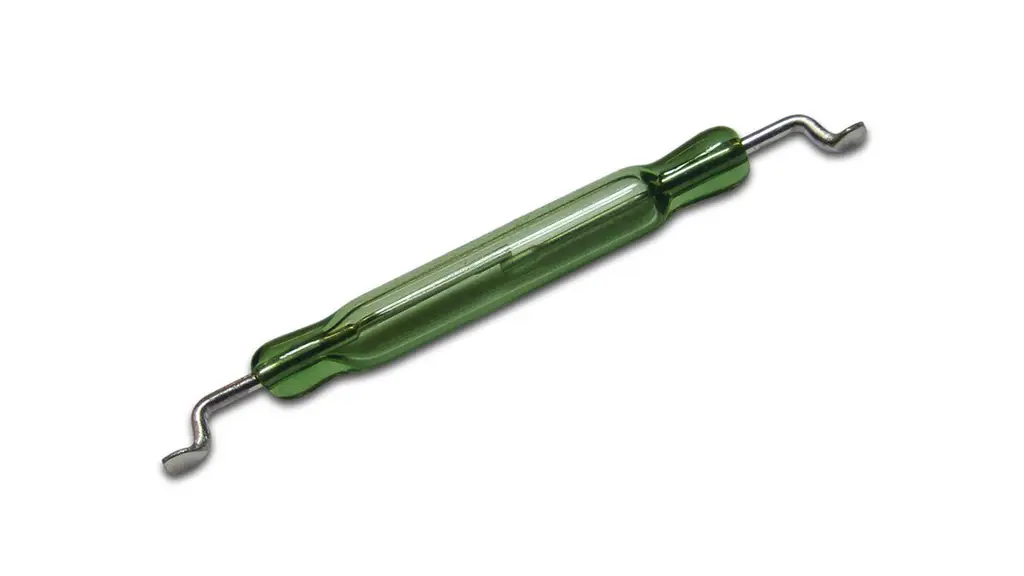
Reed Switches
A reed switch consists of two ferromagnetic and specially shaped contact blades (reeds) positioned in a hermetically sealed glass tube in a protective atmosphere. The plated contact surfaces are isolated from the outside environment, which protects the contacts from contamination. Reed switches are available as form A (normally open), form C (changeover), and form B (normally closed). They are operated using a magnetic field generated by either a permanent magnet or current-carrying coil. Applications include sensors, relays, pulse counters and security devices.
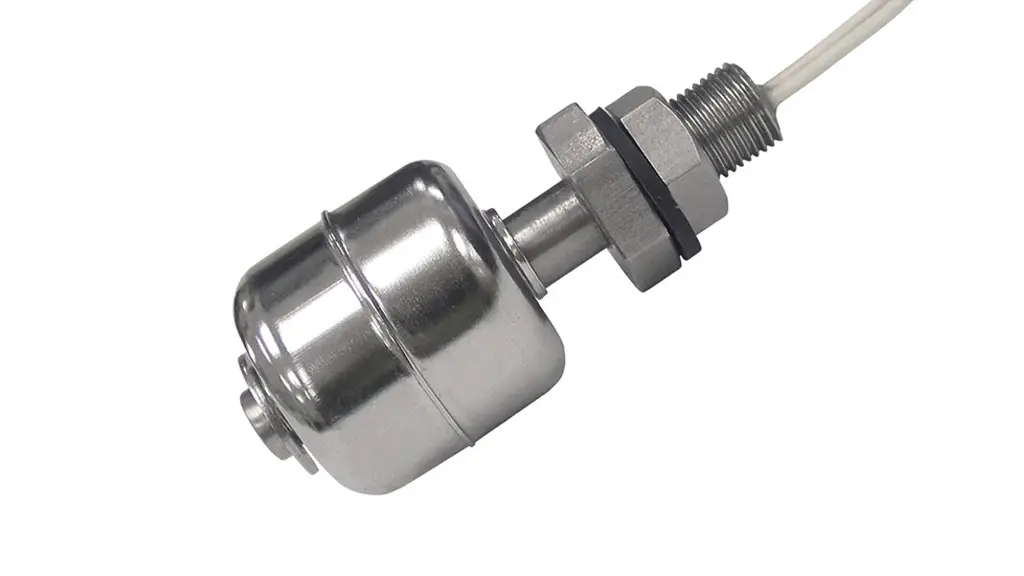
Float Switches
Float switches are designed to fit into tanks or reservoirs containing fluids. They are used to monitor liquid levels by opening or closing when a desired action point is reached. They are operated by a magnet fitted into the float assembly and a Reed Switch fitted into the stem of the float body. A variety of types are available using mercury and non-mercury tilt switches and, also, permanent magnets and reed switches. Common applications include sumps, pump-control systems, bilge pumps, below ground vaults and irrigation systems.
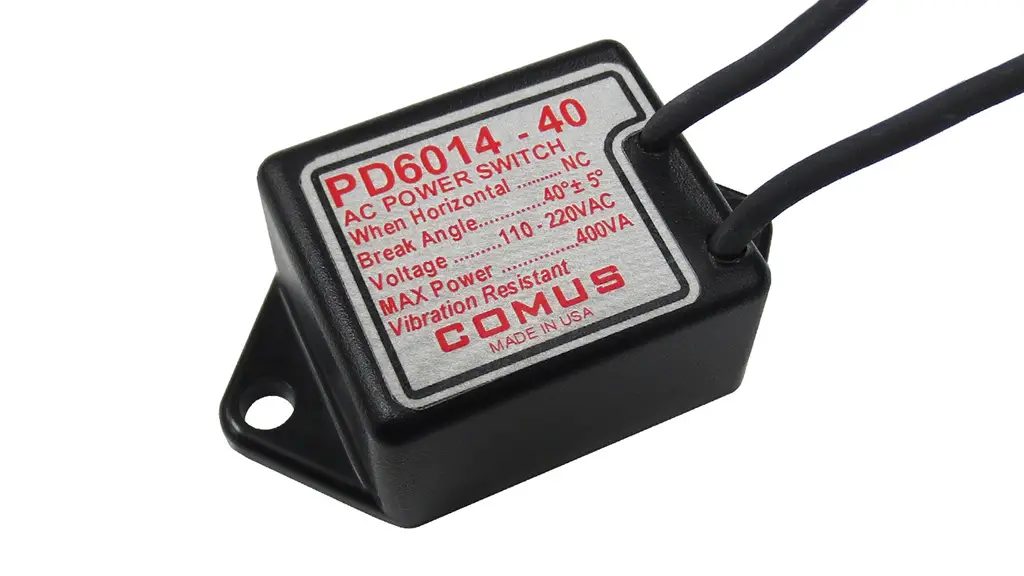
Smart Sensors
A smart sensor has multiple sensors and multiple processing techniques to obtain and transmit more information than one could achieve from independent sensors. Smart sensors are extremely universal. They could be used in anything from consumer products to the automotive industry. Here at Comus International we customize our products to your specification. Whether it’s changing reaction time, g-force, or tilt control, our line of programmable sensors can give you the versatility needed for your application.
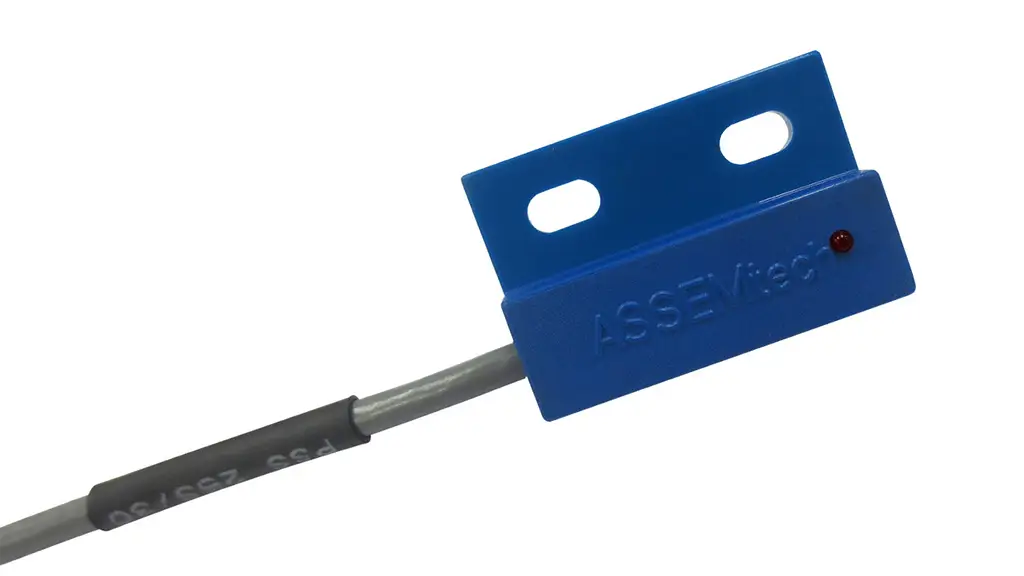
Proximity Switches
We manufacture a wide range of proximity switches that use either reed based, Hall effect or GMR technology. A reed based switch is activated by a magnetic field pulling the contacts either apart or together. Hall effect and GMR switches use electronic sensors and require a power supply to operate. The benefit of an electronic proximity switch is that an LED can be fitted to show the state of the switch. These switches are very sensitive. They can detect a ferrous metal from greater distances than reed based switches.
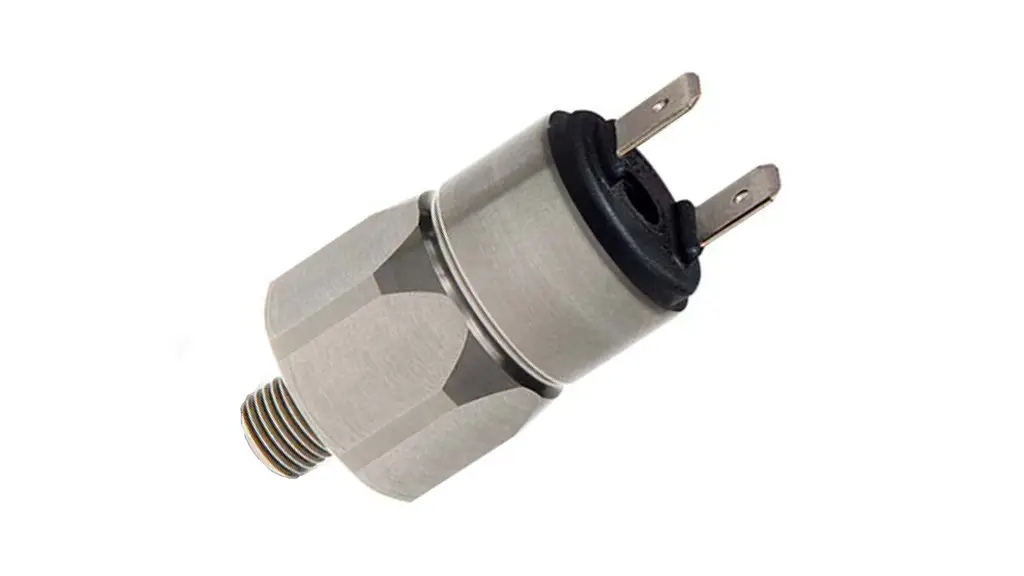
Pressure Switches
Our pressure switches use a diaphragm and small piston to push open or close a set of contacts. The switches come in either fixed pressure or adjustable by means of rotating a screw in the end cap. Pressure switches can be used to monitor pressure and can either trigger an over pressure cut out or low pressure warning condition.

